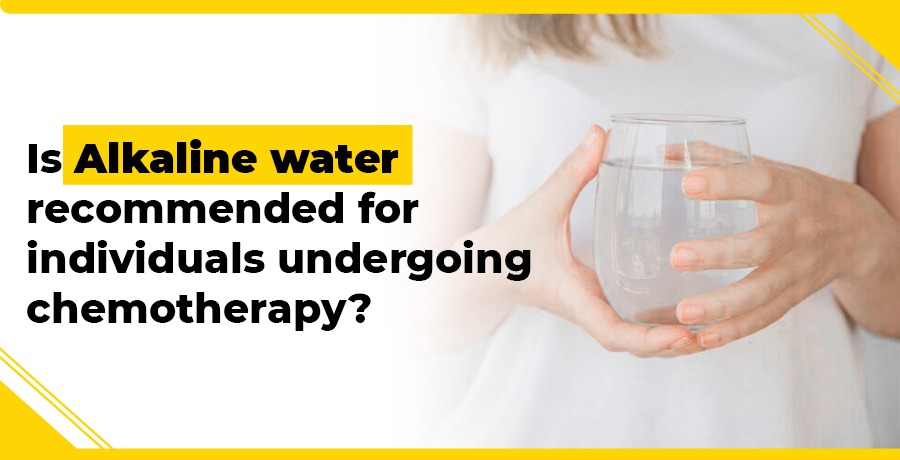Alkaline water has gained popularity in recent years for its purported health benefits, including claims of helping with cancer treatment. However, it's important to approach such claims with caution and rely on scientific evidence when considering its use, especially for individuals undergoing chemotherapy. This article will explore the concept of alkaline water and its potential effects on cancer patients while emphasizing the importance of consulting with healthcare professionals for personalized guidance during cancer treatment.
Understanding Alkaline Water
Alkaline water is characterized by having a higher pH level than regular tap water. The pH scale ranges from 0 to 14, with 7 considered neutral, below 7 being acidic, and above 7 being alkaline. Alkaline water typically has a pH level between 8 and 10. Proponents of alkaline water claim that it can help neutralize excess acidity in the body and provide various health benefits.
Cancer and Alkaline Water
Cancer cells thrive in an acidic environment, which has led some to speculate that alkaline water may have a role to play in cancer treatment. The theory is that by consuming alkaline water, individuals can create a more alkaline internal environment, making it less favorable for cancer cells to grow. However, the scientific evidence supporting this idea is limited, and the relationship between dietary pH and cancer is complex.
Research on this topic is ongoing, but there is currently no definitive proof that consuming alkaline water can significantly impact cancer treatment or prevention. Cancer is a complex disease, and its progression and response to treatment involve multiple factors beyond pH levels in the body.
Potential Benefits and Risks
While there is no concrete evidence linking alkaline water to cancer treatment, there are some potential benefits and risks to consider:
Potential Benefits:
- Hydration: Alkaline water may be more palatable to some individuals, leading to increased water intake and improved hydration.
- Antioxidant Properties: Some alkaline waters contain minerals like magnesium and calcium, which can act as antioxidants in the body, potentially reducing oxidative stress.
Potential Risks:
- Expense: Alkaline water can be significantly more expensive than regular tap water, making it an impractical choice for many.
- Over-Alkalinity: Consuming excessively alkaline water could potentially disrupt the body's natural pH balance, leading to health issues.
- Lack of Scientific Evidence: There is a lack of substantial scientific evidence to support the health claims associated with alkaline water, particularly in the context of cancer treatment.
Consulting a Healthcare Professional
Individuals undergoing chemotherapy should always consult their healthcare team, which includes oncologists and dietitians, before making significant changes to their diet or fluid intake. Chemotherapy can have various side effects, including nausea, diarrhea, and changes in taste perception, which may influence dietary choices.
Healthcare professionals can provide tailored advice based on the individual's specific medical condition, treatment plan, and any potential interactions between alkaline water and chemotherapy drugs. They can help patients make informed decisions about their diet and fluid intake to optimize their overall health and well-being during cancer treatment.
In summary, while alkaline water has been promoted as a potential complementary therapy for cancer treatment, there is limited scientific evidence to support its effectiveness. Individuals undergoing chemotherapy should prioritize consulting with their healthcare team and following their recommendations to ensure that any dietary changes are safe and appropriate for their specific situation. The primary focus should always be on evidence-based cancer treatments and strategies that have been proven to be effective in the medical community.


